- What John Lennon Thinks of Donald Trump - November 14, 2016
- The Meaning of Fun: The Paul is Dead Rumor - February 3, 2016
- BEATLES-STREEP-SHEA SHOCKER: IT’S NOT HER!!!! - August 13, 2015

Midnight Rambler
DEVIN McKINNEY • A friend sent this link to a Guardian article titled “31 Songs That Changed My Life,” in which a variety of English creatives (actually, not enough variety—only six are women) name and briefly describe a song they found in some way determinative of their personal development. Per the EW “best album” commented on by Mike, I don’t like such lists yet I almost always look at them. This entry caught me: #15, by Scottish crime novelist Ian Rankin:
Midnight Rambler by The Rolling Stones
I have chosen this from my favourite Rolling Stones album: I’m obsessed with them, and have used many titles of their songs as titles for my short stories and novels. “Midnight Rambler” was the first time I’d ever heard a rock group sing about a serial killer—it’s about the Boston Strangler. It was the end of the Sixties, and when The Beatles were singing “All you Need is Love,” The Stones, who were a good, liberal, rock group, were a bit more realistic.
The foolishness of this is self-evident. I take “realistic” to refer to that which touches upon reality, or at least consensus reality, meaning the reality that most humans feel they share. It is certainly a reality that serial killers exist, and that they continue to do their work—on TV shows like “The Following” and “Hannibal” and in novels like Rankin’s, anyway. But the relative percentage of humans affected in any way by serial killers other than through such entertainments is somewhere beneath infinitesimal, whereas the number of those affected by love, the concept or the thing, its presence or its lack, is precisely the number of people who have ever lived. Not to mention the equally obvious fact that there was a world of difference between August 1967, when the Beatles debuted “All You Need Is Love,” and December 1969, when Let It Bleed appeared, with “Midnight Rambler” as a showpiece.
Yet Rankin’s is a perspective that has held sway among significant numbers of listeners since the mid-1960s, long before the Stones were singing anything as explicit as “Rambler.” Hunter S. Thompson’s famous comment was that the Beatles just wanted to hold your hand, while the Stones wanted to pillage your town—the comparison itself making it clear which pursuit Thompson, given his pathologies and his genius, found more vital, true, “realistic.” Many folks, as we know, associate realism as an artistic or philosophical value exclusively with the bloody and the ugly—or at least with their own daydreams of same; and not because horror is inherently more real than anything else on earth but because a dalliance with certain accepted signifiers of horror helps those people feel realer (tougher, cooler, more hard-boiled, less illusioned) than they otherwise suspect themselves to be.
I am confident in describing this feeling because I feel it too; I always have. And a feature of my protracted adolescence was the secret sub-feeling that the Beatles’ achievement was perhaps not as weighty as that of the Stones for exactly these reasons. As a consequence, I’ve always sought out the ugly and the violent, the dissonant and the dark, the perverse and the hidden in the Beatles’ art, partly because it interests me more to look beneath the surface than to describe what is perfectly self-apparent, and partly because like any daydreamer of darkness I feel enlivened, as if a need is being met, when I’m in some kind of imaginative touch with sensations that I find objectively unpleasant.
But damn it: You grow up eventually. Your obsessions remain but your focus spreads. You realize that horror as most of us know it (for most of us have never been touched intimately by murder or war) is just another kind of romance novel, and that an undue emphasis on the grungy and decadent is just another brand of naivete—albeit one with a hipper label. You still dally with the dark, because it is fun; because it answers that need which is still there and probably always will be; because it feels like you’re pursuing an essential part of the full human story. But you start appreciating love and hope and air and light in ways you never could before, not back when you were an adolescent whose innocence lay in his cynicism—his “realism.”
Having thus grown up and spread out, you realize yet again why the Beatles are supreme. I still love the Stones, always will. But I’ve often felt that in singing songs about sex killers and interracial whorehouses and cocaine blitzes—not to mention violent revolution, at the moment when it was culturally advantageous to do so—they in a certain sense took the easy route to mythic status. It’s never been uncool to call yourself a Stones fan. On the other hand, extolling or just entertaining the philosophical implications of “all you need is love” will almost never make you appear the hippest person in a given room. The Beatles always flirted with, and especially in the late ‘60s and throughout the ‘70s were recurrently accused of, just that kind of irrelevance—the kind that hinged on signifiers, words like “love” and phrases like “violent revolution” and quasi-ideas like “war is just a shot away,” which the Stones had up front and the Beatles merely (“merely”!) had embedded in the texture and the tragedy of their sound, a contrast in explicitness that for many meant that the Beatles weren’t as “realistic” (impossible to use that word without meta-quotes) as the Stones.
But the people saying that in the ‘60s, from the pioneering rock critics to rank-and-file radicals, were, I recognize yet again to my astonishment, mostly about half my age at the time. We may think we have it sussed out, but if life teaches you anything it’s that there are always surprises ahead, and that they will work changes on you that you can’t begin to foresee. That the Beatles only grow in stature as I age, whereas the Stones shrink to something that is often a little less than life-size, to me says a lot more about a rock group’s relevance than does that group’s willingness to write, sing, and play an eight-minute song, even a good one, about a sex killer. Meanwhile the reduction of “realism” to the trappings of violence says rather more about the listener than about the work. To travel, as Ian Rankin seems to, on the assumptions that 1) because a thing is violent and ugly it is by definition more realistic than things which are not; and that 2) creative work about that violent and ugly thing is intrinsically more worthwhile betrays, at the very least, a remarkably stunted view of what reality, without quotes, contains.

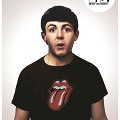
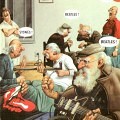

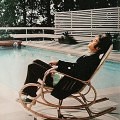

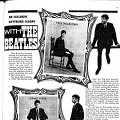
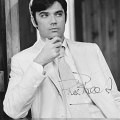

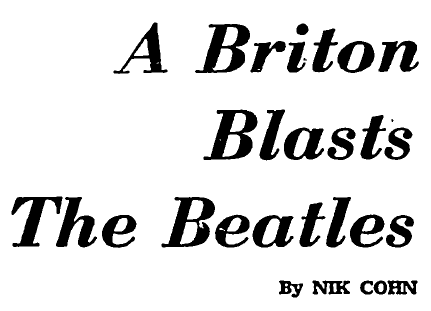
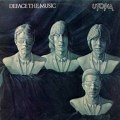


Another great post. I had similar feelings when I read Keith’s book “Life”. I love the Stones, and really enjoyed Keith’s book, but talk about someone who never drops the mask… wow. All of that tough talk is just kind of silly from a 68 year old man, I’m sorry. We’ve discussed Macca a lot around here lately, and it’s hard not to compare him to his few contemporaries. He looks a hell of a lot cooler and more sincere to me than Mick and the boys. He might not play a lot of new stuff live, but he sure as hell makes great new stuff… I could go on and on. I do love the Stones. Midnight Rambler and Can’t You Hear Me Knocking might just be 2 of the most bad-assed songs ever. Don’t see how that diminishes the Fabs in any way though?
It’s more than a little hilarious that Ian Rankin describes the Stones as “a good liberal rock group” when Mick Jagger recent sang the praises of Margaret Thatcher and is considered a closet Tory in British circles. He and his fellow Stones have never spoken out consistently for liberal causes in 50 years. You’ve got to be wearing serious blinders to consider them a “liberal” band.
And I also hate how Paul’s solo work and his Beatles songs always get short shrift on these lists and the predictable boring choice of Imagine once again makes the list. John had so many songs. Paul had so many songs. Why the hell is it always Imagine? It’s the choice of someone who can’t think of anything else to say.
— Drew
Excellent. This expresses how I feel exactly, but don’t have your clarity of thought to express.
Excellent post. As one grows up, one realizes that there’s more than one kind of “realism”. Yes, I see, say, the Velvet Underground’s work as being “realistic”, but I also see the songs of everyday joys and sorrows that the Kinks wrote in their heyday as being at least as realistic. Darkness is always with us, but so is light. I will always appreciate the Beatles for giving me joy and happiness, optimism, and a unique world view. They made me glad when I was blue (sound familiar?). They also gave me a glimpse into what COULD be, as opposed to what is right now. Maybe that’s not “realism”, but it’s something powerful; something that can, if one lets it, get a person out of his/her cynicism enough to have a little faith in life…and oneself (free your mind instead, anyone?).
—Barb
Barb, that’s a superb contrast, Velvets and Kinks. Here’s a thinker: Listen to “Heroin” and then to “Dead End Street.” Both are gray, dank, objectively hopeless visions; one has drug addiction, the other just lower-middle-class boredom. But ask yourself which is realism, and which fantasy.
Devin, very well said.
Optimism is inherently risky. Wised-up toughness is essentially defensive.
“Fool to Cry” is one of my favorite Stones songs because it feels like them dropping the mask of toughness and allowing a genuine moment of vulnerability and complexity to come through.
There’s also a whole gender-based thing going on here as well, IMO (Beatles as having “girl-cooties,” in Mike’s wonderful phrase), and the Stones being guys’ guys.
There’s also a whole gender-based thing going on here as well, IMO (Beatles as having “girl-cooties,” in Mike’s wonderful phrase), and the Stones being guys’ guys.
I never understood that business of the Stones being cooler with guys, and the Beatles having “girl cooties” because wasn’t it Mick who said he had sex with Bowie? And didn’t the Stones pose in drag? Does anyone remember the book of illustrations “Rock Dreams”? If you don’t, do a google image search of “Rock Dreams Rolling Stones”
– hologram sam
Excellent post Devin. I hate to weigh in with only two minor points of fact, but I think it was Tom Wolfe (not Hunter S. Thompson) who famously said “The Beatles want to hold your hand, but the Stones want to burn down your town.” (Or at least he said that first). And there isn’t a lyric about “violent revolution” in the Stones’ song “Street Fighting Man.” People often hear it that way, but the lyric is “think the time is right for palace revolution.”
I’ve really been enjoying HeyDullBlog lately
“I never understood that business of the Stones being cooler with guys, and the Beatles having “girl cooties” because wasn’t it Mick who said he had sex with Bowie? And didn’t the Stones pose in drag?”
But that’s just it, Sam. It’s fine for Mick and Bowie to experiment with bisexuality because they’re MEN, valuing other MEN. They’re taking a feminine role or feminine wardrobe and making it masculine.
But the Beatles were associated with the “weaker” sex. Girls liked the Beatles — ergo, the Beatles were more easily demeaned as artists. Rock music never valued women and actively disdained anything that was viewed as too feminine or too cute or too soft.
It didn’t matter that the Beatles were, in fact, much tougher than the Stones and came from a tough town and (3 of the 4 of them) from working-class or poor backgrounds. It was the manufactured image of the bands that influenced perceptions. And the popularity of the Beatles made the band more easily demeaned because, sheesh, they were liked by girls so they must not be that good, right?
This comment has been removed by the author.
@Anon and others–
I really couldn’t be a Stones fan after I heard “Under My Thumb.” Ugly sentiment, ugly group, ugly view of the world. Yeah, the Beatles have their moments of misogyny (“Run For Your Life” for example), but that bullshit isn’t part of their identity, like it is with The Stones.
And that’s maybe the ugliest thing of all: The Stones are a brand, not a band. Sure I like their hits, but they’re primarily an exercise in marketing. They’re much more like The Monkees than The Beatles, which is why they keep on chugging through the decades. Creative partnerships are unstable; business partnerships much less so. And the ongoing corporate-led celebration of The Stones isn’t a celebration of rock’s rebellious side, but in fact the exact opposite: how it pretends to be rebellious but actually reinforces the status quo.
The Stones don’t want to pillage anything except your bank. They maybe want to pee on your gas station, but only if there are cameras. And they’re only “The World’s Greatest Rock and Roll Band” like Budweiser is “The World’s Greatest Beer.” If that’s great, you can have it.
Thanks for those corrections, Anonymous.
Michael, interesting comparison of “Under My Thumb” and “Run for Your Life.” I think the former is misogynist and the latter is not.
“Under My Thumb” explicitly uses all kinds of societal put-downs of women (does just what she’s told, talks when she’s spoken to, etc.) and feels cold. Yes, the speaker is getting back at the woman who disrespected him, but it feels calculating and controlled. And the speaker is getting off on the idea of how his treatment of the woman is part of an overall pattern of putting women in their place.
“Run for Your Life,” on the other hand, is pure foaming-at-the-mouth jealous anger. Lennon sounds desperate, undone by his feelings for the woman he’s addressing — he’s running hot, not cold. The singing redeems this song for me, even though it also creeps me out.
(Memorable moment: listening to this song in the car, and having my 10-year-old daughter ask “Is he really saying he’s going to KILL her?” Which led to an interesting discussion of art vs. life, and an unambiguous instruction from me that she do the running if a guy ever said that to her.)
I have to add that I love the Stones and think it’s too harsh to say that they’re “a brand, not a band.” It’s tough to age gracefully when you’ve been the designated bad boys of rock, but overall their musical legacy is stellar, and second to only one band I think too much about.
@Nancy, there’s no arguing taste, but my feeling is, if you removed the Stones somehow–if their bus had exploded in 1963–the history of rock wouldn’t have been much different. The white-boy blues stuff would be done by Clapton and The Yardbirds and Mayall; the harder rock would be supplied by The Who and then Zeppelin; there would be no end to the Dionysian party bands; and so forth. They’re just not that essential, except in a marketing sense, as Pepsi to The Beatles’ Coke. From that aspect, they WERE inevitable. That’s their only essential role.
And at this point, like Pepsi, they’ve been a part of so many memories for so many people, what they are (or even were) can’t be seen, if it ever really mattered.
I can enjoy their best stuff–Satisfaction, Street Fighting Man, Jumping Jack Flash, etc–but Satisfaction’s no more special than You Really Got Me or My Generation. Stones, Kinks, Who, Cream, even The Doors–it’s all the same stew to me.
Truthfully, it’s tough for me to feel much about The Stones one way or the other–there’s not enough in there to spur a reaction. But I do find their delight in naughtiness totally asinine, and proof of just how thin the rock and roll game is, and how far from great art.
I find it a bit infantile when someone who loves the Stones feels compelled almost like a knee jerk reaction, to contrast The Beatles unfavorably. What does loving Midnight Rambler have to do with the Beatles or any of their songs? Why were they even mentioned? It’s tiresome. I’ve been listening to, loving, and reading about, rock music for the last 43 years but the only conclusion I’ve come to is, there are an aweful lot of ridiculous, childish, non thinking rock fans, who seem to be forever locked into the mindset of a 14 year old boy. Sorry Michael for stealing your 14 year old boy analogy, but it is a comparison that I’ve noticed for many years.
I think that a lot of people like Rankin forget how radical the Beatles were. Before the Beatles, British pop was filled with Alma Cogans, Billy Furys, and Cliff Richard types. They’re all worth listening to on Youtube, just to give one a real taste of how bland British music used to be. The Beatles blew open a door. They smoked, they drank, they were agnostics, and they were cheeky and subversive. They were from the North and refused to talk posh. They did American rock and roll without sounding like lame imitations of American stars. And they wrote their own songs. Yes, they made a compromise or two to blast open that door, like wearing suits instead of leather, but they kept the most important parts of themselves and their personalities—and they were successful at it.
Consequently, it was relatively easy for a group like the Stones to walk through a freshly opened door. They may have “gone farther” than the Beatles in terms of outrage, just as the Who may have rocked harder. But only the Beatles could have opened that door in the first place. I feel that it’s actually more radical to be a pioneer than to go down a trail someone else has newly blazed.
Now, I like the Stones. For me, the Beatles led to the Stones, which led to the other British Invasion groups. But the Stones also led me to the blues, country music, Borges, and (through the film Performance) British neo-noir films like Get Carter and Mona Lisa. Maybe Rankin was, like me, led to neo-noir by Performance. Maybe that’s why he’s more into the Stones than he is the Beatles. Maybe he’s the type of guy that can see fine in the dark, but as for me, I need some light to show the way, so maybe that’s why I’m a bit more into the Beatles.
But I really am not into the Stones vs. the Beatles. I love both groups. I just love the Beatles the most.
It might be a fascinating topic for this blog to discuss where the Beatles led all of us. For instance, I never would have gotten into Buddy Holly or Smokey Robinson without the Beatles. I don’t think I would have discovered the Goons or Cook and Moore without them, either.
—Barb
Any time you start to feel that Mick Jagger is cooler than ANY of The Beatles, just watch this video of Mick and David Bowie performing “Dancing In The Street”. I guarantee you will change your mind.
This is the most unintentionally hilarious video ever.
http://www.youtube.com/watch?v=9G4jnaznUoQ
I didn’t mean for this post to turn into a Stones-bash, though that was inevitable, the way things go on this blog. I meant to point out the shortsightedness of categorically defining realism as rough and fantasy as flowery, and then demoting the Beatles by means of this false dichotomy — a gambit that has always fueled the Beatles-versus-Stones debate.
The course of popular music would most assuredly not have been the same had the Stones ceased to exist in 1963. I’ve seen the same argument made against the Beatles. In fact, I was reminded of something posted on a rec.music discussion group a long time ago; through the machinery of Google Groups I was able to retrieve it, and thought I’d reproduce it here as a point of obvious interest. (It’s more anti-British Invasion than specifically anti-Beatles, but given that the former wouldn’t have happened without the latter, it amounts to the same thing.)
This was posted by “Richard” on December 7, 1996:
Were there no British Invasion, IMHO American pop music would have done quite well and probably would have sounded roughly the same. The Motown sound was already in the air and would have developed the same way. In fact, it would have received more airplay as James Brown would have which would have brought a funkier edge to music around 66 or so.
The Beach Boys would have owned the country and the elaborate vocals would have spawned an Everly Brothers-rock fusion sound from somewhere; probably from the Midwest. That would have spawned Beatles-like sound.
The Four Seasons would have lasted much longer and as their horrible album of Dylan songs shows, they were adventurous and who knows where that would have taken them.
The New York folk scene would have drifted toward rock music and the
folk-rock scene would have happened anyway.
There was a strong Chuck Berry influence in the Midwest and hard rock would have come from that area of the country.
Would Dylan have gone electric. Yes! He was a Chuck Berry fan and he listened to groups like The Blues Project that were playing in NYC at the time.
The only change I can see is that the blues revival that started in
England probably wouldn’t have happened.
American rock and roll would have done alright without English
influence…. In My Humble Opinion of course.
My response:
On this issue of where American pop would have gone without the Beatles, I don’t think enough attention is paid to the Beatles’ trickle-down influence on American soul music.
Would the late ’60s-early ’70s explosion of new soul sounds (sorry if that sounds too much like a K-Tel commercial) have happened sans the Fabs? Sly Stone has proclaimed a heavy Beatle influence, as has George Clinton, as has Michael Jackson, as has Prince, as has Terence Drent D’Arby, as has De La Soul, etc. upon etc.
As for Motown, would such experimental (within commercial boundaries) Motown sides as the Supremes’ “Reflections” been made without the Beatles’ introduction of strange and foreign sounds into strict pop frameworks?
Would the Temptations have recorded the six-minute-long “Papa Was a Rollin’ Stone” had the Beatles not in large part introduced and popularized extended song suites with “A Day in the Life” and “Hey Jude”?
Can anyone say that Marvin Gaye and Stevie Wonder would have made the albums they did in the early ’70s (WHAT’S GOING ON, TALKING BOOK, LET’S GET IT ON, INNERVISIONS) had the Beatles never existed?
Without the Beatles and Dylan as groundbreakers, would Gaye and Wonder have suddenly found it essential to write and control the production of their own material, rather than having it bestowed upon them by the Barry Gordys of the world?
Not to mention the fact that virtually all of the Motown groups, in addition to other soul stars like Otis Redding, Aretha Franklin, and Wilson Pickett, were covering Beatles songs on a regular basis. These artists obviously felt the Fabs had something to do with why they were
making music.
I think it’s obvious the Beatles had more than their share of influence on where soul and R&B went, and where it may someday return. And I think that if you accept at all the idea that soul and R&B are integral to the
development of American popular music, you cannot say that things would have gone “basically the same” had the Beatles not gotten into the American bloodstream.
Richard’s response to my response:
: Would the late ’60s-early ’70s explosion of new soul sounds (sorry if that sounds too much like a K-Tel commercial) have happened sans the Fabs? Sly Stone has proclaimed a heavy Beatle influence, as has George Clinton, as has Michael Jackson, as has Prince, as has Terence Drent D’Arby, as has De La Soul, etc. upon etc.
All of the above owe much more to James Brown. Listen to his Papa’s Got A Brand New Bag and listen to the hook and the beat. There was NOTHING like that before that song. They also owe a great debt to Smokey.
: Without the Beatles and Dylan as groundbreakers, would Gaye and Wonder have suddenly found it essential to write and control the production of their own material, rather than having it bestowed upon them by the Barry Gordys of the world?
Most definitely Stevie Wonder and Marvin Gaye would have argued for the kinds of controls that Smokey Robinson had over his music. He was able to write and produce himself as well as compete with the stable of Motown writers.
: Not to mention the fact that virtually all of the Motown groups, in addition to other soul stars like Otis Redding, Aretha Franklin, and Wilson Pickett, were covering Beatles songs on a regular basis. These artists obviously felt the Fabs had something to do with why they were
making music.
The aforementioned covered the Beatles as they covered standards of other eras. For goodness sakes, Otis had one of his biggest hits with Frank Sinatra’s chestnut, Try A Little Tenderness. They had a good ear for good pop music; hence covering the Beatles. The real detriment to American music that was caused by The Beatles and
the British Invasion was the creation of a BIIIIG music business that forced out the hundreds of small labels (ironically Swan included) that
created the cutting edge of both rock and roll and rhythm and blues. The Beatles created a national music scene in America that set back rock and roll innovation by denying regional markets that new exciting niche acts could break out of. It wasn’t until the punk scene of the early eighties and the gangsta rap scene of the nineties that small labels could lead the pack.
My response to Richard’s response to my response:
>All of the above owe much more to James Brown.
OF COURSE your average soul great owes more to James Brown than to the Beatles; but this does nothing to deny that the Beatles were a heavy influence on the course soul and R&B took around the turn of the decade. To deny they had a great impact on black music as well as white is simply not to listen.
>Most definitely Stevie Wonder and Marvin Gaye would >have argued for the kinds of controls that Smokey >Robinson had over his music.
Good point. But it’s often been observed that the Beatles more than
anyone made artists feel the need for creative autonomy; after them it became the standard for groups to generate their own material. You can count on one hand the number of artists (Berry, Holly) who assumed that same power before the Beatles.
>The aforementioned covered the Beatles as they covered >standards of other eras.
Agreed–but how does this advance your original point? You seem to be implying that although Otis, Aretha, et al covered Beatle song after Beatle song, this cannot be considered an influence, because the Beatles’ music was simply in the air at the time. Yes, it was in the air, and these artists heard enough in it to want to pluck it down and turn it into
something of their own–hence the influence. I don’t recall Otis or
Aretha ever covering anything by Lou Christie or Gary Lewis and the
Playboys, even though these guys were in the air at the same time.
>The real detriment to American music that was caused by >The Beatles and the British Invasion was the creation of a >BIIIIG music business that forced out the hundreds of >small labels (ironically Swan included) that
created the >cutting edge of both rock and roll and rhythm and blues.
So this is the real crux of your gripe against the Beatles–it’s not
musical at all, it’s economic. This is a spurious construct at best. So the growth of rock and roll into a big business had nothing to do with Elvis and Colonel Tom Parker, who wanted $20,000 to play before Nixon. It
had nothing to do with Dick Clark, who Brylcreemed and commercialized rock and roll with his nationwide “Bandstand” and package-tour road shows so that it might achieve a wider market. It had nothing to do with Phil Spector, who was proud of being called “The Tycoon of Teen.” It had nothing to do with Berry Gordy, who was quite explicit in grooming and channeling his artists and their music for their maximum commercial
potential, the better to create his own entertainment empire. Important men all, but businessmen who both pre- and post-Beatles were enacting the precise agenda you attribute to the Beatles alone. If you’re going to
decry the diminution of indie labels, blame it on good old-fashioned American capitalism and marketplace Darwinism. The Beatles were following
the American lead in this respect, not setting it.
>The Beatles created a national music scene in America >that set back rock and roll innovation by denying regional >markets that new exciting niche acts could break out of.
Throughout the Beatle years there were bands that had regional hits on indie labels–Paul Revere & the Raiders in the Northwest, Mitch Ryder and Bob Seger in Detroit, the Beau Brummels and a half-dozen others in San Francisco. There were burgeoning proto-punk scenes in Boston, Chicago and Texas. The best of these records broke nationally; the Beatles were not
preventing any DJ’s from playing them. And could you shoot back some
examples of the innovation you say was denied? Revere, Seger and their indie brethren made the occasional great single, but they were not braving any musical frontiers. As often as not, the indie-label bands (Sir Douglas Quintet ring a bell?) were shamelessly aping the Beatles and the British sound.
This kind of theorizing always comes down to: “would have anyway,” “from somewhere,” “who knows.” Translated, “Things would have happened more or less as they did, but in some other, purely theoretical way.” That’s like saying we’d all have been the same people if we’d had different parents — not only unprovable, but also implausible, since people are not replaceable parts. Neither are bands, certainly not at the level we’re discussing. Things would have been different had the Stones not existed chiefly because the Stones would not have existed. That’s perfectly circular and perfectly true. Take away “Satisfaction,” Aftermath, Beggars Banquet, Let It Bleed, Sticky Fingers, Exile On Main Street, and the handfuls of great songs spread among mediocre albums since then, and it’s like taking away an element of the weather. There’s no telling what organisms — developments that appear so natural and undeniable that they’d have occurred under any imaginable circumstances — would never have bloomed without it. Would we miss them? No, because we’d never have conceived of them.
And yes, that “Dancing In the Street” video is just about the funniest thing I’ve ever seen. As Bowie said once, sighing dramatically, “A lot of us lost our way in the ’80s.”
@Devin, that’s an interesting exchange, and well-argued as ever, but (to me, naturally) it sorta proves my point.
If The Beatles had stayed what they were in 1964-65 for the next 50 years–as, I would argue, The Stones basically have done–you could reasonably claim that there is less there than meets the eye. You say as much in your original post; I simply go a bit farther and say that I think other English blues-loving London-gigging 60s bands were close enough to The Stones, musically, to have done something very much like what they did, under the same intense market forces. After The Beatles made the market, there was a big Stones-shaped hole in 1963-64; someone would’ve filled it. And while there’s a huge gap between Frankie Valli and “I Wanna Hold Your Hand”; there’s not such a gap between The Yardbirds and The Stones.
The Stones did what they did exceedingly well–but other people/groups could and did do Stones-type stuff. There’s “For Your Love” on the adventurous, poppy end, lots of Nuggets on the other. Their 1968-72 stuff is just super–but that’s a difference of degree, it’s not a leap like Dylan going electric or Rubber Soul/Revolver/Pepper. The Stones’ signature advantage over people doing similar stuff was Mick’s showmanship–which is marketing, not music. he Stones ride Mick like The Doors ride Morrison, and both bands’ musical reputation is overinflated as a result.
It’s not bashing The Stones to say that they are a fairly narrow band, creatively–99% of bands are. In fact, the only way The Stones could have survived for 50 years is by employing, not the rules of art, which require risk and growth, but the principles of branding and marketing, which enshrine the opposite: strong definition, relentless repetition, and maintenance of a simple image. Whether a fan thinks that’s a good thing or a hustle or doesn’t care is up to them. I personally don’t care, because I grew up listening to Chicago blues and Atlantic/Stax soul (dad and mom, respectively), and once you’ve heard Aretha and Otis Redding and Wilson Pickett, etc, Jagger’s impact is muted. Still good, sure; but not special.
The Stones have their place in the history of rock and roll; but it’s a vastly more minor place, IMHO, than generally recognized. Since Tattoo You they’ve been a nostalgia act, and anybody moderating a Beatles blog has to cop to the pleasures of nostalgia. But speaking just for myself, very little of the Stones catalog sounds to me like something only they could’ve done, and speaking strictly musically–not Jagger’s stagecraft or the accrued image of the band–it’s almost numbingly uninventive. And that is why Mick and co strayed into darker and darker content; they grew bored.
Devin, there are so many funny moments in that video.
When Bowie jumps off the staircase in slow-motion, his face going, “Waaaaggghh!”
When Bowie sways his hips and clasps himself as he moans “streets of Brazil!”
When Jagger bellows “SOUTH AMERICA” and “Don’t forget the MOTOR CITY”
When Jagger stops for a moment in the middle of the song and picks up a product-placed can of Diet Coke.
I once inadvertently insulted a rabid rolling stones fan by suggesting they reminded me somewhat of a minstrel act. I didn’t mean to cause offense, but he recoiled as if I’d slapped him.
But I always thought they followed the tradition of Al Jolson, but without the (physical) blackface.
Here is the original “It’s All Over Now” by the Valentinos:
http://www.youtube.com/watch?v=Vf-oiLUzb1k
I love some of the Jagger/Richards compositions, but when it comes to their covers, I prefer the originals every time.
– hologram sam
J.R., my friend Tim (who’s a HUGE Stones and Bowie fan) and I have sat watching that video many a time, just laughing our asses off. Bowie’s leg kicks at the beginning; the way Jagger sensually appraises Bowie as the latter dances a circle around him. It’s just too much fun.
Unlike the Beatles’, the Stones’ cover versions seldom improved on their models, except in one key case: “I Wanna Be Your Man,” written by you know who, and a damn sight better than the original.
Ian Rankin is wrong on this one.
If I am not mistaken, The Beatles released “Maxwell’s Silver Hammer” on 26 September 1969, while the Stones released “Midnight Rambler” on 5 December 1969.
Not only were The Beatles NOT singing “All You Need Is Love” at the time, they were also writing and performing a song about a serial killer months BEFORE The Rolling Stones.
Devin,
One of my friends, who is also a huge Bowie and Jagger fan, overdubbed the song “Kung Fu Fighting” over the video and it made for additional hilarity.
“Ian Rankin is wrong on this one.”
You just blew my mind.
Yeah, @JR, that’s a very good point–and one that cuts to the heart of this discussion, just as Devin’s original post did.
The thing about The Stones and ilk–by which I mean the whole vast corpus of rock on grubby topics–is that it’s a total domestication of reality, not a reflection of it. It’s reality-as-a-pop-song, without the decency of acknowledging the game.
Real serial killers are generally miserable, incredibly damaged people so crippled by emotional circumstance that they are looking for something, anything to bring relief. They aren’t cool or powerful; they don’t strut to a crunchy bluesy riff; they aren’t world-famous millionaires so numbed by excess that they need to do something outrageous to feel anything at all. They are in the grips of a compulsion that they usually recognize is not right, and they certainly realize that all of society is against them. Obviously there are exceptions to this rule, but they are the outliers; anybody who’s looked over the literature is likely to come away with pity, thanking God that they avoided whatever these poor people suffered through so that their only recourse was to become engines of pain and grief.
Pop culturally, the serial killer is a simple dramatic driver, a quotidian version of a superhero, inhabiting the same 2-D world.
The Stones specialize in providing this kind of fantasy, particularly beloved of 14-year-old white boys whatever their chronological age, race, creed or color. And it’s harmless, I’d say. But Lennon had it right when he dismissed the Stones as emotionally retarded people selling boring stuff.
I don’t like “Maxwell” as a song, and am aware of the tension it caused within the group. But it’s just as realistic as “Midnight Rambler,” which is to say not at all. And it’s probably more challenging to the listener because of the juxtaposition of subject and presentation.
McCartney is one of the people who laid the foundation for modern rock, but his activity over the years suggests he’s never felt the least bit restricted by its tropes–which is funny, because that was Lennon’s big knock against him, that he was giving the audience what they wanted. But the Beatles’ audience didn’t want granny music about a serial killer in 1969; they wanted love songs and rockers.
I know this really wasn’t the point of Devin’s original post, but I’d like to comment on this idea that there’s a dichotomy between the Beatles and the Stones. Whatever you think of the Stones (and I happen to consider them essential, even though the Beatles mean far more to me), I am for abolishing the supposed Beatles-Stones dichotomy. The dichotomy idea itself was a marketing gimmick of the 1960s. The test of a conceptual framework is whether it helps us more deeply understand what we’re looking at. Well, saying that the Stones and Beatles represented opposite poles doesn’t help us understand them. Both bands in fact moved together through similar phases (e.g., chamber-ensemble orchestration ca. 1966; psychedelia ca. 1967; return to electric blues ca. 1968; soul ca. 1969 – though the “soul” Beatles was was a sort of hidden incarnation because of the late release of Let It Be). The Beatles produced some truly dark and violent music, and I don’t mean “Maxwell’s Silver Hammer,” I mean the White Album. There simply is no dichotomy, just two bands. Overall, I agree with Michael Gerber that the work of the Stones is much narrower, while the Beatles’ body of work is far broader in stylistic range.
@Mudarra, I think that’s wise.
I was just watching a documentary about Ginger Baker, and it struck me that I feel about The Stones the way I feel about Cream–like the music, and what they do, they do exceedingly well. But their scope, what they encompass, what they aimed for and achieved and impacted is–to me–so much narrower in scope than what The Beatles were and are, that comparing them seems preposterous.
Yet people do, endlessly–and every time some rock critic or entertainment columnist rehashes the same old debate, the hives I get aren’t from hating The Stones, they’re from the incredible ignorance that’s being shown of The Beatles’ larger significance. The Beatles were sui generis, while The Stones–like Cream in its way, or The Dead in its way, or Zep in its way, or Queen in its way, or the damn Smiths or Nirvana or Radiohead–were a very, very good band. They have a place in music history. The Beatles, however, have a place in history far beyond music.
You cannot write the history of Western culture in the postwar period without discussing The Beatles. You might then discuss The Stones, Hendrix, The Dead, and so forth–but none of them are essential, and The Beatles are.
This is so incredibly obvious to me that I figure the comparison is driven by either commerce or a petulant disregard for history, neither of which I don’t have much time for. However: just because something seems obvious to me, that doesn’t mean I’m not wrong. 🙂
You might say, the Beatles could do Stones (if they’d wanted to), but the Stones couldn’t do Beatles. I once watched a humorous episode of Anthony Bourdain’s “No Reservations” in which Bourdain was interviewing potential guests for his show and having trouble deciding which interviewees’ credentials were better. In desperation, he suddenly blurted out, “Beatles or Stones? And don’t say ‘both’!”
Had I been an interviewee, I might have said, “Well, if what you’re really asking me is whether I prefer brilliant song-composition or spontaneous, energetic and somewhat messy Rock ‘n’ Roll, then I would say Beatles, because the Beatles DID do both!”
By the way, about Creem, I suspect that Eric Clapton himself felt the same way Michael does about that band’s limitations, which is why he left it. (In his memoir, he wrote that he always felt Creem’s sound was dry and empty.)
@Mudarra, that’s fascinating about Cream–Clapton’s totally right, though I haven’t the skill to have expressed it that way. I wonder if that would’ve been improved by being a quartet?
I genuinely love Anthony Bourdain but, as with The Stones, there’s something very adolescent about the image he’s so interested in putting across. The very idea of putting across an image is, IMHO, kinda stunted. This is why marketing and advertising are such fundamentally arid arts, no matter how much time and money are lavished upon them–and why it’s a tragedy that our culture has developed in such a way that advertising and marketing are so dominant. They are “art” that keeps us children; they keep us living in dreams, governed by our lizard brains, much smaller than we really are.
That’s I guess my only real beef with The Stones–how they take something (music) that could encourage their fans’ growth, and turn it into an excuse to remain a 14-year-old forever. The Beatles do challenge, because they constantly changed, and in that changing can be a path to growth, maturity, really being alive. That’s the only reason they can support a blog like this.
The Stones are a carefully maintained collection of fantasies–of power, of coolness, that you can mistreat your body and pay no price, that time doesn’t change everything. These are not helpful things to fasten on–but they are the same things that advertising pumps out. Coincidence? I think not.
As I Brit, so much of the Stones (mostly Mick’s delivery and lyrics) sound a tad phoney. All that putting on of an American (usually Black American) accent sounds corny. Fool To Cry is a good example. You just wouldn’t hear that “I gotta woman in the po’ part of town” stuff anywhere in England. The Beatles never (or almost never) sounded like they putting on an act.